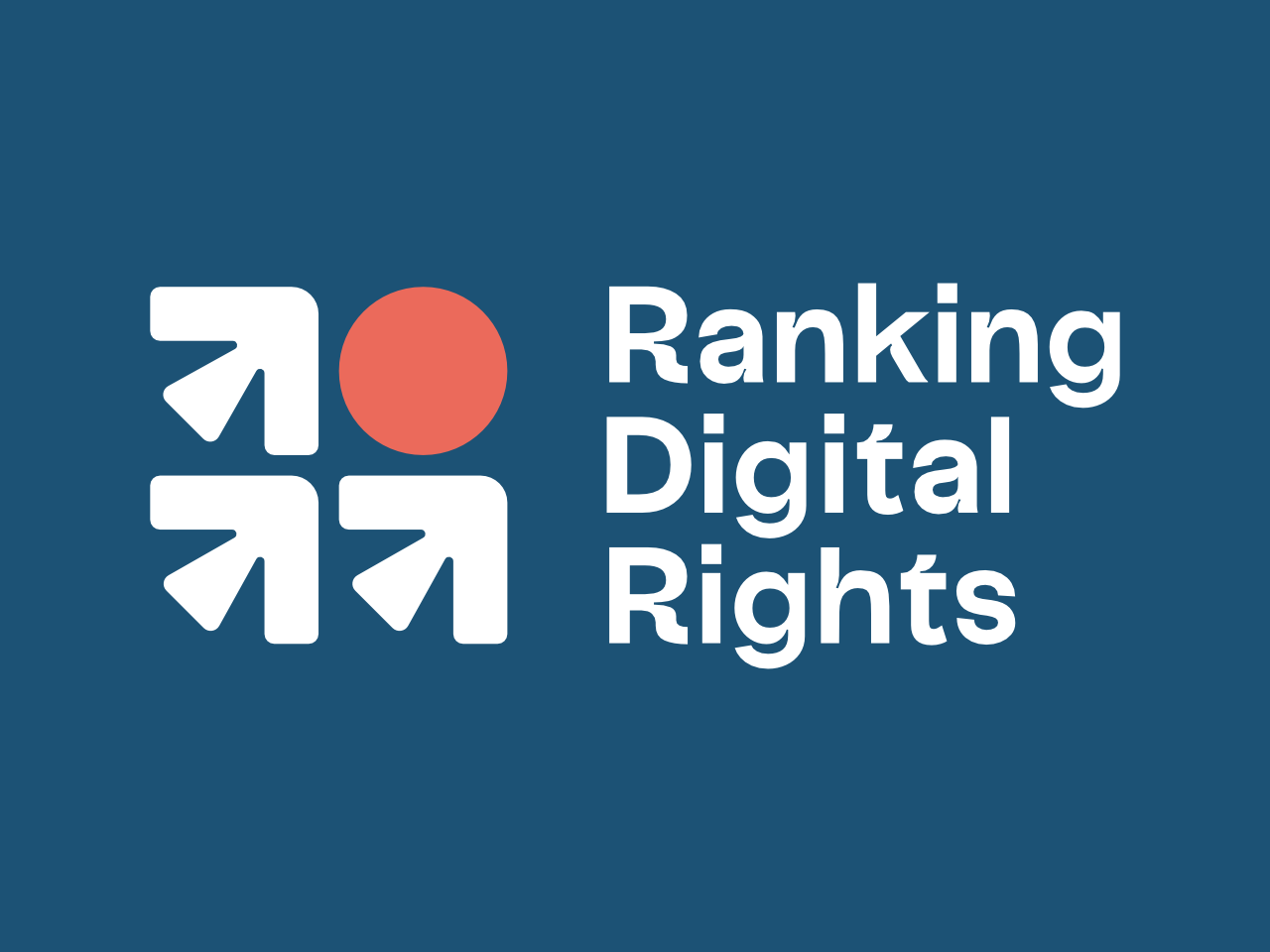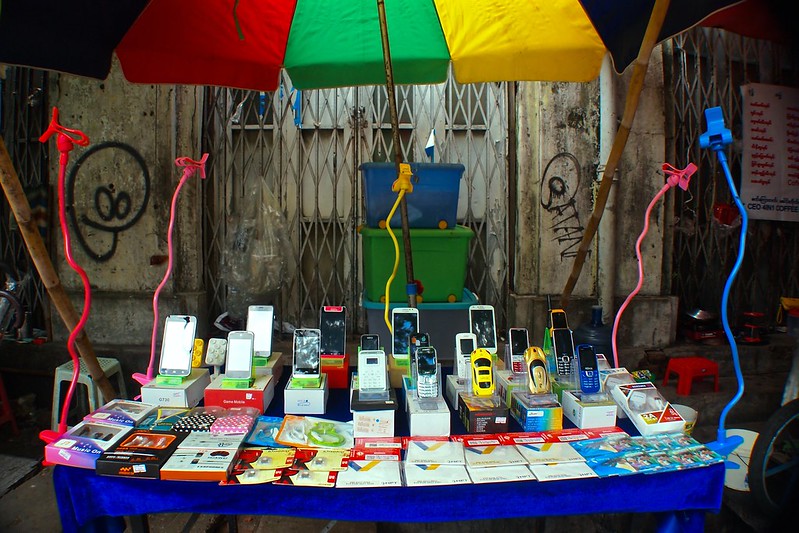23 Feb The new shape of the RDR Corporate Accountability Index
Starting in April, RDR’s flagship resource will come out in two editions: one devoted to digital platforms and one focused on telcos
TL;DR: Mark your calendars! RDR’s Big Tech Scorecard is coming. Our next set of tech company rankings will launch on April 27, featuring our signature evaluations of 14 global digital platforms’ published policies and their effects on people’s rights. This November, we will publish scorecards and rankings on the 12 telcos we cover. We’re also marking this new phase of our work with new names: From now on, we will call our flagship publications the Big Tech Scorecard and the Telco Giants Scorecard. Each will include per-company evaluations, industry-wide rankings, a summary of key findings, and special companion essays.
Also later this year, data from our 2022 evaluations and all previous ones will be available in one public database, which will become the RDR Corporate Accountability Index. This new resource will enable users to conduct interactive queries and to see companies’ progress or decline over time. We’re making these changes to help our stakeholders better digest and apply our data in their own work and to make it easier to use our data to shed light on current digital rights debates.
Why the changes?
Since 2015, we at RDR have built our reputation from the ground up, publishing five editions of the RDR Corporate Accountability Index. As our friends and allies know, the RDR Index evaluates the world’s most powerful digital platforms and telecom companies according to robust human rights–based standards and has appeared almost annually (in 2015, 2017, 2018, 2019, and 2020) since our inception. We produce the RDR Index not only to highlight overall trends in tech company policies and their impact on fundamental human rights, but also — by ranking tech and telco giants amongst their peers — to create a race to the top, pressuring companies to progressively demonstrate increased respect for privacy and freedom of expression and information.
These companies wield unprecedented power to shape the internet and our public sphere. By pushing them to be more transparent about how they operate, we aim to make them more accountable for what they say they do and ultimately make the internet more human-centered and rights-respecting overall.
The RDR Index has earned praise from former UN special rapporteur David Kaye for setting “a gold standard for the fact-finding required to assess the human rights impact of the companies that create, manage and facilitate vast digital networks and spaces.” We’ve learned that company executives take it seriously too. Over the years we’ve seen a significant increase in the level of engagement of their policy teams and have also heard firsthand that they care about how they fare against their competitors. Google’s former head of international relations, Ross LaJeunesse, told us that our rankings gave him a powerful tool for exerting internal pressure to improve: “I thought I had an ace in my hand when we were getting hit by RDR for not having a more explicit commitment to human rights.”
The paradox of rigor
Despite receiving widespread recognition that the RDR Index is a robust, rigorous, and — most important — credible resource, we also have learned that many of our civil society, policymaker, investor, and journalist stakeholders find it hard to plumb the depths of our data to gain the insights they’re looking for. This isn’t surprising: With the addition of 10 companies since our inception and our new indicators on targeted advertising and algorithmic systems (added in 2020), we now ask more than 300 questions across 26 companies that operate in every region of the world. Our research generates hundreds of thousands of data points.
In short, we are confronted with “the RDR paradox,” as one friend of RDR has dubbed it. The people and organizations whom we most want to use our data to support their own advocacy, and whom we believe are best positioned to use it, can find it challenging to access and apply — because it is so vast, covering multiple facets of the many digital rights issues we face as a society. This makes our data hard to query, and sometimes difficult to connect to the issues of the day.
While we are able interpret our findings for our audiences in many ways — with our data visualizations, essays, and policy analyses — we of course cannot anticipate every possible angle or use of our data. So we’re taking some steps that we hope will make it easier for others to use our data and surface new insights, including the public roll-out of our database, and our plan to split the RDR Corporate Accountability Index into two editions, the aforementioned Big Tech and Telco Giants scorecards.
Twice is nice
While our primary reasons for splitting our flagship research product by company type is to make it more digestible for users, there are other benefits as well. In the past, producing the RDR Index consumed the majority of RDR’s resources over the course of a year and sometimes prevented our team from responding to rapid developments in the tech policy arena. Dividing up our data collection and analysis has already freed us to produce more enterprise research and engage more substantively with stakeholders, including policymakers and investors. Publishing twice each year also offers us two big public relations moments to engage the press and hold companies accountable for their human rights shortcomings.
Even more important, splitting our rankings by platforms and telcos will enable us to dive deeper into the specific human rights challenges presented by each company type. Digital platforms often get more attention for their transgressions than do telcos, because they are still seen as new technologies. But telcos are just as likely to enable human rights violations. They can carry out network shutdowns, censor websites, and, if pressured to do so, hand over users’ communications, demographic, and billing data that both governments and corporate actors can abuse for their own gains. In fact, Big Tech companies have a new-found interest in this information, which in recent years has given telcos a unique ability to carry out and profit from targeted advertising across the communications and tech industries.
As the only producer of longitudinal data on tech company policies and their impact on human rights, we need to plan for the long-term, which we believe these changes help us do. The world’s Big Tech companies and telco giants aren’t going anywhere, and they need to know that we’re not either.
Let us know what you think. How else can we make holding companies accountable easier for you? Send me an email at dheere@rankingdigitalrights.org, and let’s talk.







